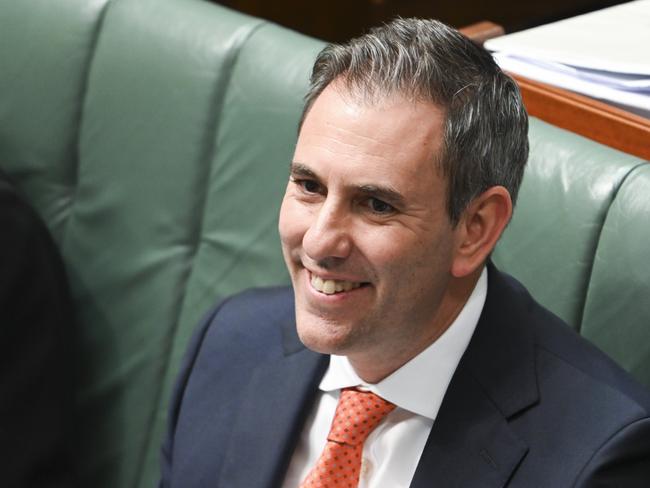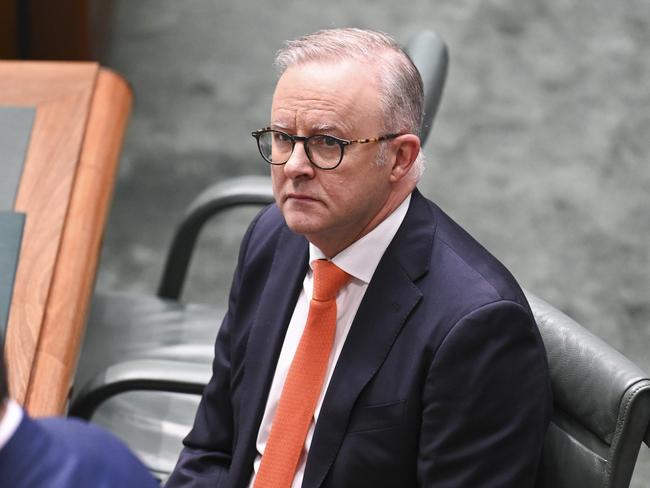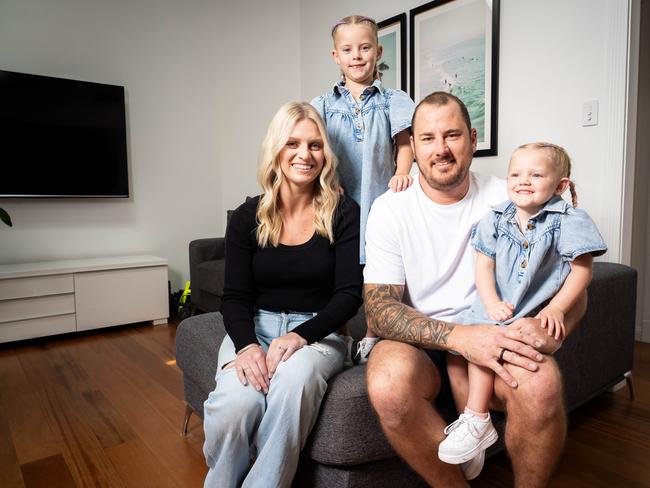Labor faces backlash over housing affordability crisis as concerns mount over falling standards of living
Voters convinced they won’t ever be able buy a home are set to swing away from Labor as housing affordability firms as the key issue ahead of the next election.
National
Don't miss out on the headlines from National. Followed categories will be added to My News.
Exclusive: Voters convinced they won’t ever be able buy a home are set to punish Labor as housing affordability firms as the key issue ahead of the next election alongside concerns over falling living standards and retirement.
New polling has revealed 85 per cent of Australians believe it is impossible or are unsure whether a young person can break into the real estate market without family assistance and rates of pessimism are highest in electorates held by Labor.
It comes as the Coalition leads voter preferences for the first time since the 2022 federal election, according to a Newspoll conducted for The Australian, edging ahead of Labor by
51/49 with eight months to go until the next election.
The research by Redbridge and Accent found that electorate level pessimism towards home ownership and retirement strongly correlates with swings away from the government, especially in outer suburban and regional areas.
Electorates with high levels of economic pessimism include those held by key Labor frontbenchers including Home Affairs Minister Tony Burke in Watson, Industry Minister Ed Husic in Chifley and Education Minister Jason Clare in Blaxland, all of which are in western Sydney.
Meanwhile the electorate of Rankin in Queensland, which is held by Treasurer Jim Chalmers, has the highest number of voters who do not feel confident about their retirement (68 per cent).

Nationally more than half of Australians, 59 per cent, do not feel confident about retirement while nine out of 10 believe standards of living will be worse or much worse for future generations.
RedBridge director Kos Samaras said successive interest rate hikes had burnt through people’s savings and future interest rate cuts would unlikely deliver the economic relief to voters that Labor would need at the next election.
“One or two interest cuts won’t even touch the sides of the struggles these Australians are facing,” said Mr Samaras, a former Labor strategist.
“If the government is hoping interest rate cuts will get it out of hot water it will be bitterly disappointed.”

In NSW, Victoria, South Australia, Western Australia, Tasmania, and the ACT, only 15 per cent voters believe it is possible for young people to enter the housing market without family assistance.
In Queensland, the rate is 14 per cent, while in the Northern Territory, it is 12 per cent.
Servicing a loan on a median Australian dwelling now requires over half of the income of the median household earning a gross annual income of around $100,000, according to CoreLogic’s latest Affordability Report.
Head of Residential Research Eliza Owen said the 50.3 per cent cost of servicing a mortgage was an increase from the decade average of about 37 per cent, a hike she said was “clearly unsustainable”.
“In all likelihood the median income household is not buying the median dwelling,” she said.
“They’re looking for something smaller or maybe those who are getting into the market are getting help from the bank of mum and dad to get their deposit together so they don’t owe as much debt.”
Seats with a higher proportion of voters who believe it is possible for Australians to get into the property market without family assistance tended to be affluent and have fewer renters, the Redbridge research found.
These include Berowra, Mitchell and Bradfield in Sydney’s north, Kooyong in Melbourne’s east, Curtin in Perth’s east and the regional electorates of Gippsland, Maranoa and Nicholls.
Accent Research principal Shaun Ratcliff said the research revealed a stark divide between affluent metropolitan electorates and most of Australia.
“This electorate-level pessimism towards home ownership and retirement that we have identified is associated with a decline in support for the Labor Party in many outer-suburban and regional electorates,” he said.
“This should be a concern for the government, as these seats are likely to decide the next election.”
Australian Housing and Urban Research Institute managing director Michael Fotheringham said voter sentiment towards housing “wasn’t pessimism but realism” and affordability would likely remain a key policy issue in future elections.
“What we are seeing is the result of several decades of under investment in housing policy [and] it’s going to take a number of years and an appropriate level of investment to really make a difference,” said Dr Fotheringham.
FAMILY FEARS FOR DAUGHTERS’ HOUSING FUTURE
Their daughters may only be six and two, but Jessi and Brenden Lemmes have already started planning their future property journey.
They are looking to buy investment properties for their girls, Jordan, and Brooklyn — otherwise they say it is likely will ever buy their own home.
“It is going to be very hard for our kids in years to come,” Mrs Lemmes, 32, said.
“We have to get them set up now or they will never own a home.”

The Lemmes, a fitness instructor and plumber, are paying off a mortgage on their home in the suburb of Mount Annan in Sydney’s far southwest.
As well as interest rate hikes increasing their repayments, Mrs Lemmes said the family were facing the rising cost of living.
“The price of food is ridiculous,” said Mrs Lemmes.
Both self employed, the couple is also grappling with the knock on effect successive interest rates have had on their clients.
Mrs Lemmes, who specialises in fitness for mothers, said she lost about 40 clients the last time the Reserve Bank of Australia raised the official cash rate.
“No one wants to spend money on a fitness coach.
“Unfortunately for families really struggling that’s the first thing that’s gone.
“They all said they just can’t afford it. I can’t force them to stay when they don’t have the money.”
Mrs Lemmes said navigating economic uncertainty was difficult and said her focus was doing as much as possible now to ensure her family’s future security.
“It’s very up and down, sometimes you feel things are going well … then you’re hit with a wall and have to rethink everything,” she said.




